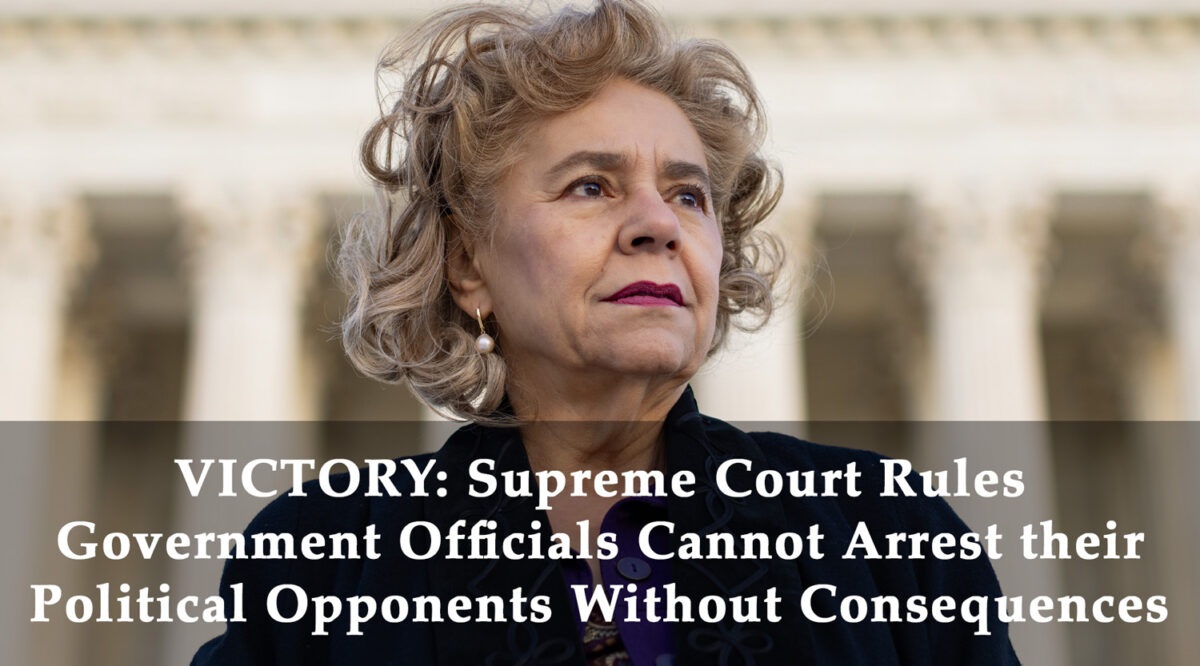Finally, the city council of Castle Hills, Texas, is doing the right thing by Sylvia Gonzalez, accepting a settlement to resolve years of litigation against the city for violating her First Amendment rights.
In 2024, the U.S. Supreme Court ruled in her favor, agreeing that courts may properly consider evidence that an arrest is retaliatory.
According to Gonzalez’s lawsuit, in 2019 city leaders had lashed out against the councilwoman for her support of a nonbinding petition to remove a city manager. The city’s weapon? A rarely used law that it wielded against her for “briefly and inadvertently having the petition among her papers” during a heated council meeting; she allegedly tried to “steal” her own petition.
Gonzalez was arrested and spent a day in jail — the real reason, according to her lawsuit, being her criticism of local leaders.
The settlement means that statewide training on “First Amendment retaliation” (presumably, how to avoid engaging in it) will be offered throughout Texas and, for Castle Hill officials, will be mandatory.
The city must also pay $500,000 in damages to Gonzalez.
Anya Bidwell, an attorney for the Institute of Justice, which represented Gonzalez in the suit, observes that the First Amendment “doesn’t come with handcuffs. This outcome sends a message to officials everywhere: if you retaliate against critics, you can be held to account.”
Let’s hope that not a whole lot of training is needed to safeguard local freedom of speech. The issue is not that complicated.
This is Common Sense. I’m Paul Jacob.
Illustration created with Krea and Firefly
See all recent commentary
(simplified and organized)
See recent popular posts









